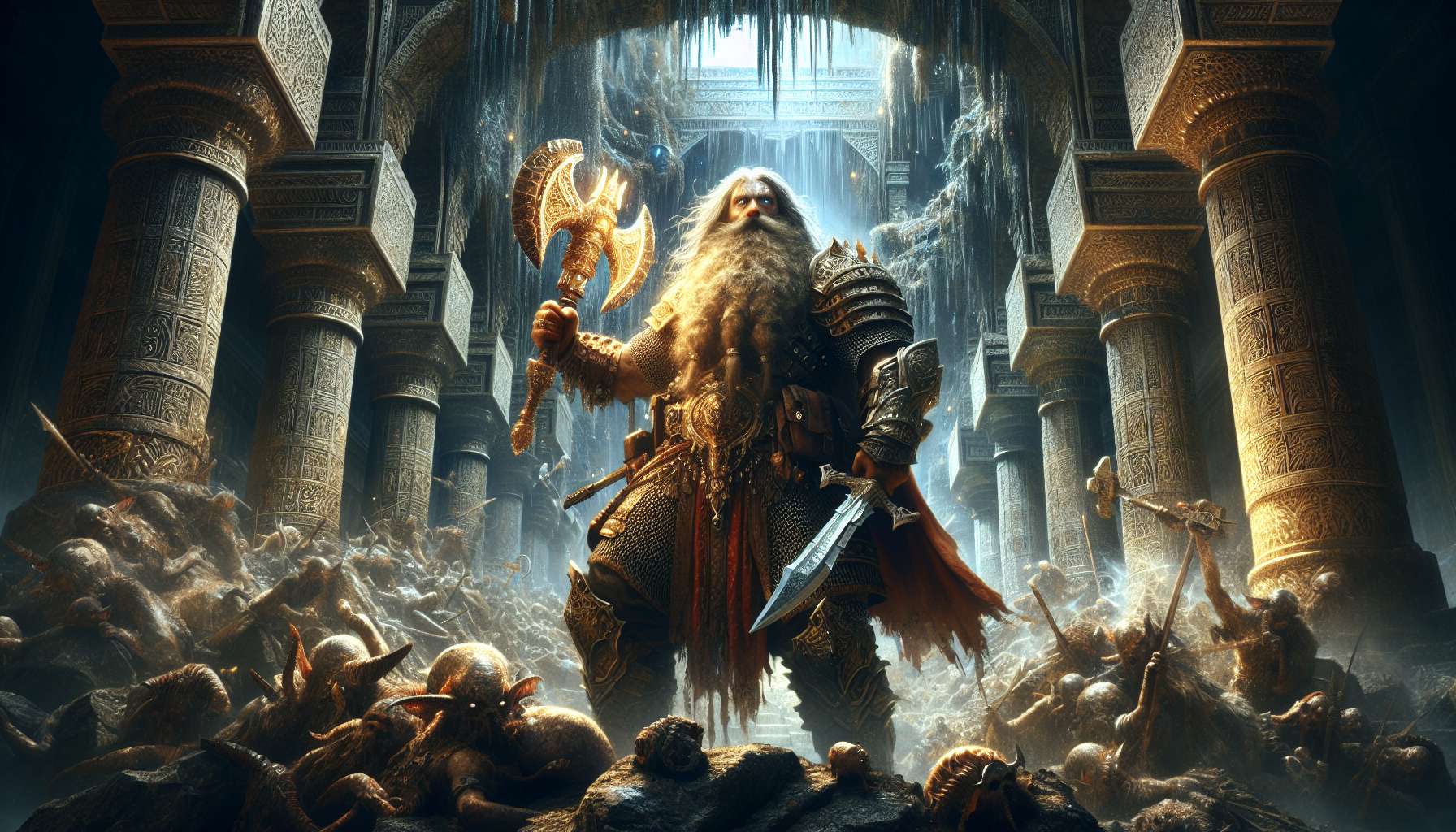When crafting a character, the distribution of ability scores is a pivotal decision that shapes your character's identity, capabilities, and role within the party. There are multiple strategies to approach this task, each offering a unique blend of gameplay, roleplaying depth, and character development opportunities. Here are three distinct strategies to consider when allocating your ability scores, designed to cater to different play styles and narrative preferences:
- The Balanced Build Strategy focuses on creating a versatile character capable of handling a variety of situations with no significant weaknesses.
- The Specialist Strategy emphasizes maximizing the character’s effectiveness in their primary role, whether that’s dealing damage, casting spells, or another specialized function.
- The Roleplaying-First Strategy encourages the creation of memorable and distinctive characters by embracing unconventional ability score distributions to enhance storytelling and roleplaying experiences.
Each strategy offers a different way to experience the game, from the tactical considerations of combat to the rich narratives that unfold through interaction with the world and its inhabitants. Whether you're optimizing for gameplay or narrative, or a mix of both, these strategies can guide you in bringing your unique character to life.
1. The Balanced Build Strategy
Objective: To create a versatile character capable of performing well in a variety of situations.
- Primary Focus: Distribute ability scores to ensure the character has no significant weaknesses, making them adaptable to different challenges.
- Application:
- For characters expected to engage in combat and spellcasting (like Paladins or Rangers), prioritize Strength or Dexterity (depending on the character's combat style) and Wisdom or Charisma (for spellcasting). Ensure Constitution is also reasonably high to boost hit points.
- For characters focused on support and versatility (like Bards or Clerics), balance between their primary spellcasting ability (Charisma for Bards, Wisdom for Clerics) and Constitution or Dexterity to improve survivability and initiative.
- Intelligence is vital for characters dependent on knowledge and skills, such as Wizards. However, other classes should avoid relegating it to a "dump stat," as doing so can improve skill checks and specific saving throws.
2. The Specialist Strategy
Objective: To maximize efficiency in the character’s primary role, whether it be damage output, spellcasting, or another specialized function.
- Primary Focus: Invest the highest ability scores in the one or two abilities most critical to the character’s main function, sacrificing versatility for peak performance in specific areas.
- Application:
- For combat-focused characters (like Fighters or Barbarians), place the highest scores in Strength (or Dexterity for finesse/ranged weapon users) and Constitution to maximize damage output and survivability.
- Spellcasters (like Sorcerers or Wizards) should allocate their highest scores to their primary spellcasting ability (Charisma or Intelligence, respectively) to ensure their spells are harder to resist and they have more spell slots available.
- For stealth or social manipulation focused characters (like Rogues or Bards focusing on diplomacy), prioritize Dexterity and Charisma, respectively, to excel in their roles within the party.
Additional Considerations:
- Always remember the racial bonuses when applying your scores; placing a high roll in an ability that receives a racial bonus can further enhance the character's strengths.
- Consider the party's composition and campaign type. For example, in a party lacking in frontline combatants, creating a more durable character, regardless of class, might be more beneficial than following the class's typical build strategy.
3. The Roleplaying-First Strategy
Objective: Focus on creating a memorable and unique character by deliberately choosing non-optimal ability score allocations to enhance roleplaying and storytelling aspects.
- Primary Focus: Craft a character with distinctive traits, quirks, and potential for growth by embracing unconventional ability score distributions that may not traditionally align with the character's class or expected role.
Application:
- Invert Expectations: Assign high scores to abilities not typically associated with the character’s class. For example, a Wizard with unusually high Strength but average Intelligence could have a backstory as a laborer or soldier who discovered their magical talent later in life, offering a rich narrative for development and occasional comedic relief.
- Embrace Flaws: Deliberately placing lower scores in crucial abilities for your class can create a character with clear vulnerabilities but greater depth. A Bard with modest Charisma might struggle with performances but could strive to prove themselves through actions rather than words, leading to a rewarding character arc.
- Narrative Hooks: Use atypical score distributions as a basis for backstory and motivations. A Rogue with high Wisdom but low Dexterity could be an older character, wise from experience but no longer as agile, driving them to rely on cunning and planning over agility.
Additional Considerations:
- Party Dynamics: Communicate with your group to ensure that your character’s unique traits complement the party and enrich the group's experience. Your character’s challenges can become a source of group storytelling and adventure.
- Game Balance: While embracing unconventional builds, maintain a level of functionality that ensures your character can contribute effectively to the party’s success, avoiding frustration in gameplay.
- Character Growth: Use your character's unconventional strengths and weaknesses as a foundation for growth and development. Overcoming initial shortcomings or learning to utilize unique strengths can provide a satisfying arc to your character's story.
This strategy enhances the roleplaying experience by prioritizing character depth and narrative engagement over optimization. It encourages creative problem-solving and storytelling, making for a memorable and enjoyable game for both the player and their companions.
